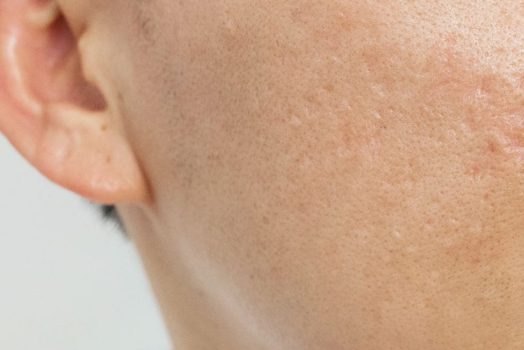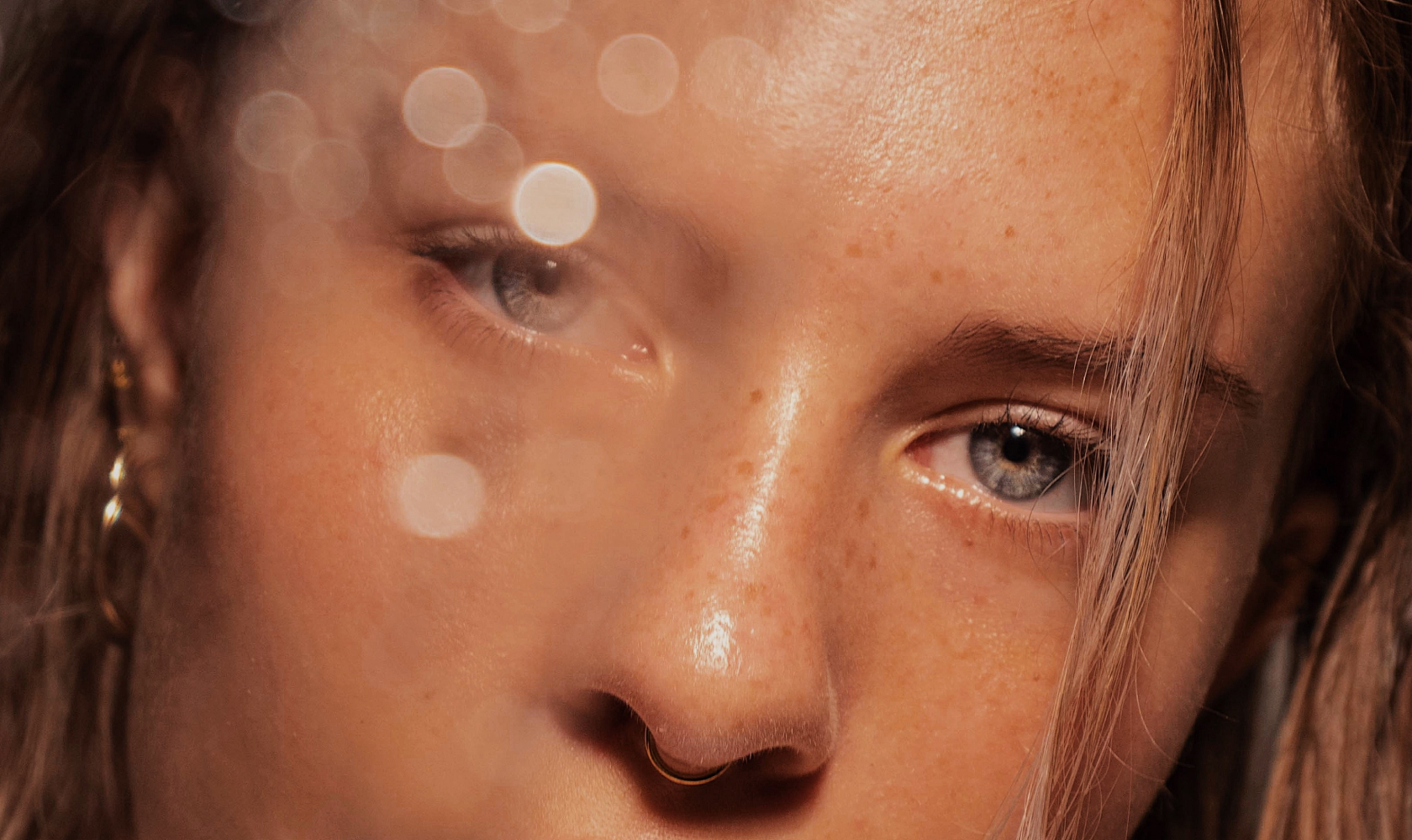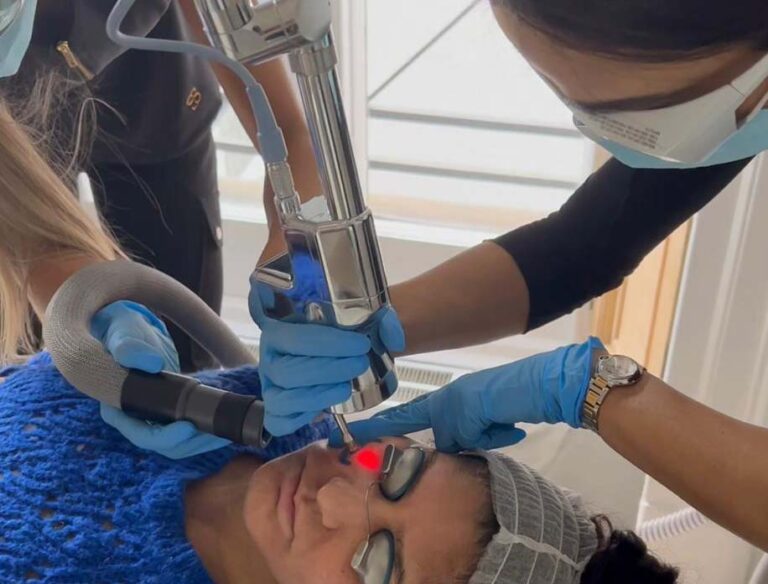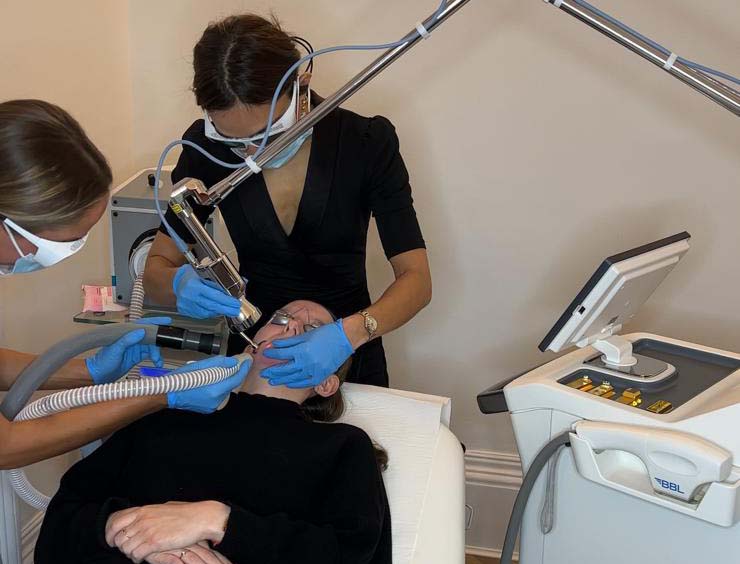Acne Scarring Treatment - Harley Street, London

Acne is one of the most common skin conditions, affecting up to 80% of the population at some point. In about 20-30% of people that have moderate to severe acne, permanent scarring of the skin can result.
Acne scarring can have a profound psychological effect on the sufferer long after the acne itself has gone. Misleading information results in much time, money, and effort being wasted on miracle cures without miracle results. There are, however, effective treatments available for managing acne and scarring.
Why Does Scarring Occur?
Acne scarring typically occurs in association with spots that cause deep inflammation (nodules and cysts). Inflammation and its resolution can result in a number of skin surface abnormalities:
- Deposition of new collagen, causing uneven surface elevation of the skin.
- Tethering of the skin surface, resulting in small depressions or “pits”.
- Permanently enlarged or dilated blood vessels as part of the body’s natural wound healing response to inflammation, resulting in redness.
- Damage to skin cells, which causes the release of the pigment melanin and leads to a brown discolouration.
- The altered skin texture and colour contrasts sharply with normal surrounding “unscarred” skin and can attract attention.
Types of Acne Scar
Scars can either be elevated or depressed from the skin surface.
Elevated scars
There are two types of raised scars: hypertrophic and keloid. Both types occur due to overgrowth of dense fibrous tissue after the healing of a skin injury. Generally speaking, hypertrophic scars are the same size as the spot that caused them, but keloid scars extend beyond the limits of the original injury. Keloid scarring is more common in pigmented skin and typically occurs on the shoulders, angle of the jaw, and chest area. These scars usually do not resolve by themselves and often require intervention to soften or flatten the areas.
Depressed scars
There are three main types of depressed acne scarring.
- Ice-pick scars: These are deep, narrow, pitted scars that commonly occur following acne to the forehead or mid to upper cheeks.
- Boxcar scars: These are broad depressions with sharply-defined edges. The scars can be several millimetres wide and can result in a “crateriform” appearance of the skin.
- Rolling scars: These are broad depressions with sloping edges, leaving the skin with a rippled or undulating appearance.
Many individuals that have acne scarring are likely to have a combination of the different subtypes.
Who Should You See for Treatment?
An experienced General Medical Council (GMC) registered dermatologist, such as those here at Self London, will be able to guide you on the best treatments for your skin. It is important that any active acne is treated before any scar therapies commence and a dermatologist will be able to perform an accurate clinical assessment. Often, acne that is leaving scars requires oral medication, some of which can only be prescribed by a specialist.
How Can Scarring Be Treated?
Although some acne scarring will improve over time, the skin contour does not usually completely normalise. There are several methods that can be used to treat acne scarring if it is causing distress. Sometimes a combination of treatments may be required to get the best result as one person may have several different types of scars.
Steroid injections
Steroid injections are often used to flatten raised scars and so are ideal for hypertrophic and keloid scars. Small injections, usually with an agent called triamcinolone, are placed directly into the scar. Depending on the size of the scar, several treatment sessions may be required and these are usually done a few weeks apart. This is a safe procedure but should only be carried out by an expert due to potential risks such as skin thinning and pigmentation change.
Surgical Treatments
Surgical treatments, such as punch excision and subcision, can be useful for treating indented or depressed acne scars. Ice-pick and boxcar scars can be removed by punch excision. This method uses a tool known as a punch biopsy to cut out the scarred area under local anaesthetic. The resulting wound is closed by a small suture or stitch. Round, irregular scars can be turned into flat, slit-like scars with this technique. Subcision will treat rolling scars. A needle is inserted into the skin after appropriate numbing and used to break up fibrous bands that are causing tethering of the skin. This causes release of the depressed scar.
Microneedling
Medical microneedling is a clinic-based treatment also sometimes known as collagen induction therapy. The skin is numbed using local anaesthetic cream and a device is used to make multiple small pin-point injuries to the skin. These heal within two days. Micro-injury to the skin is thought to promote new collagen production and may have a role in minor depressed acne scarring. Usually, multiple treatments about four to six weeks apart are required.
Tricholoroacetic Acid Chemical Reconstruction of Skin Scars (TCA CROSS)
TCA CROSS is another clinic procedure that can be useful for treating depressed acne scars. Small amounts of trichloroacetic acid (TCA) are deposited directly into the scars in high concentration (70-100%). A local inflammatory reaction is triggered, resulting in new collagen production into the scarred area. It can have a useful role in treating ice-pick, boxcar, and rolling scars. The procedure is usually well-tolerated with little complication if performed by an expert. Often, multiple sessions may be required.
Laser therapies
There are multiple laser therapies available that can improve acne scarring. Depending on your individual skin type and nature and extent of scarring, the correct laser device can be chosen. Commonly used lasers include the erbium:YAG and carbon dioxide lasers for resurfacing of depressed facial scars. Erbium:YAG lasers are generally considered to cause fewer problems with pigmentation and prolonged redness after treatment. Lasers can also use “fractionated” technology; this is where columns of controlled injury are interspersed with untreated skin, resulting in an accelerated recovery period. An experienced cosmetic dermatologist, like those here at Self London, will be able to guide you through the best treatment choice for you.
Self London specialises in acne scarring treatments and can employ a variety of methods to help with scar reduction.
Book an appointment to have a discussion and make a plan for treating your acne scars.




